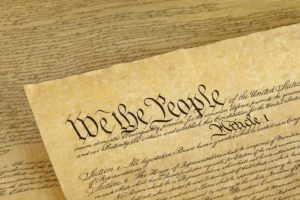The Eleventh Circuit recently found in favor of Blue Bell Creameries, Inc. by rejecting its own earlier dicta and explicitly expanding the preference payment defense known as “new value.” This provides additional protection for companies doing business with a debtor in the 90 days prior to bankruptcy.
The Scoop: Bruno’s v. Blue Bell
In 2008, Blue Bell Creameries (Blue Bell) was a steady supplier of ice cream to Bruno’s Supermarkets, LLC (Bruno’s). In the 90 days before Bruno’s bankruptcy filing, Bruno’s paid Blue Bell approximately $560,000. Meanwhile, during those 90 days, Blue Bell delivered approximately $435,000 in products to Bruno’s, only some of which was paid for.
Bruno’s filed for bankruptcy and then sued Blue Bell, claiming that the entire $560,000 was a “preference.” A “preference” in bankruptcy vernacular is any transfer of an interest of the debtor in property to or for the benefit of a creditor, based on an antecedent debt, made while the debtor was insolvent, and made within 90 days of the bankruptcy, that provides the creditor with more than it would receive in a chapter 7 liquidation. See 11 U.S.C. § 547(b). A common example of a preference applicable here is when a debtor seeks to claw back payments it made within 90 days before the bankruptcy to an unsecured supplier, despite the debtor having received the goods or services related to such payments. Although this may seem inherently unfair to the supplier, the underlying bankruptcy policy is that equally situated creditors should be treated equally—no one creditor should be “preferred,” or receive payment leading up to bankruptcy, while others do not.
Chocolate or Vanilla?: Eleventh Circuit Dicta Conflates Unavoidable and Unpaid
Here, the $560,000 was admittedly a preference on its face. However, Blue Bell asserted the statutory defense known as “new value.” Basically, a trustee may not avoid a preference to the extent that, after such transfer, such creditor gave new value to the debtor. The wrinkle is that such new value must not have been satisfied by an “otherwise unavoidable transfer . . . .” 11 U.S.C. § 547(c)(4)(B) (emphasis added). The Eleventh Circuit previously stated that this phrase had “generally been read to require . . . that the new value must remain unpaid.” Charisma Inv. Co. v. Airport Sys., Inc. (In re Jet Florida Sys., Inc.), 841 F.2d 1082, 1083 (11th Cir. 1988) (emphasis added). Blue Bell challenged the “unpaid” language of Jet Florida, arguing that it should be able to utilize all new value delivered during the 90-day preference period, whether paid for or not, to shield that same dollar amount from being clawed back.
The bankruptcy court, relying on the “unpaid” language in Jet Florida, gave Blue Bell credit only for amounts that were unpaid, and ultimately held that the trustee could avoid about $440,000 of the over $560,000.
Dessert Is Served: Paid New Value Still Counts
On appeal, the Eleventh Circuit disagreed with the bankruptcy court. The Circuit Court rejected its own Jet Florida language as nonbinding dicta and joined the Fourth, Fifth, Eighth, and Ninth Circuits in holding that new value need not remain unpaid for the creditor to use the new value defense. Three factors swayed the court.
First, the plain language of the statute reads “unavoidable,” not “unpaid.” As both parties agreed, the transfers were preferences and therefore avoidable by the trustee, thus satisfying the “not . . . otherwise unavoidable” requirement of the statute. Second, although the predecessor statute to section 547(c)(4) required new value to remain unpaid, the current statute abandoned that language. One can reasonably conclude that Congress intentionally removed the unpaid limitation to the new value defense by removing the explicit language. Finally, policy considerations indicated that new value need not remain unpaid. If courts decided otherwise, then creditors such as Blue Bell would be hesitant to extend credit to distressed businesses such as Bruno’s in their run up to bankruptcy. This would thwart a key purpose of chapter 11 bankruptcy, which is to reorganize a debtor’s business so that it may pay creditors and regain profitability in the future. In addition, encouraging short-term creditors such as Blue Bell to extend credit to distressed businesses such as Bruno’s will help longer-term creditors. This extension of credit will therefore help distressed businesses from entering bankruptcy in the first place—a better result for all involved.






